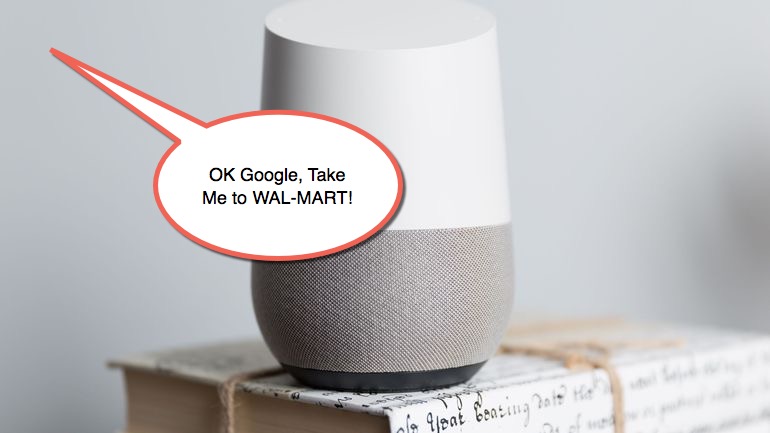Two months ago we reported that Walmart had teamed up with Alphabet’s Google to allow Google Home users to do voice shopping with Google Assistant. The retail giant has now integrated its own customer relationship management system with Google Express, which means customers can use their current Walmart accounts to shop online with their voice.
What sets this apart from the deals that other retailers have with Google (and even Amazon) is that the shopper’s purchase history is now combined with Google’s AI capabilities to make the voice shopping experience easier than ever.
Google Home can now access a customer’s linked Walmart account to figure out what products they typically buy and then place an order for them for that exact same product, even if the user doesn’t specify the exact brand.
This rich pool of customer information, along with Google’s own repository of user habits, will make a killer combination in terms of understanding what the customer wants – a critical component of the voice shopping experience.
The relationship between Google and Walmart is not one-sided, however. Google benefits by leveraging Walmart’s growing online customer base, most of whom were physical shoppers with Walmart to begin with. In doing this with Walmart and other retailers, Google is promoting its Home devices by increasing the value they offer the average consumer.
Voice shopping now has buy-in from not only some of the world’s largest big box retailers, but also from technology companies like Google and, of course, Amazon. It may have been Amazon that got the ball rolling in a big way, the way it shook up the cloud computing industry a decade ago, but it might not be Amazon that’s the biggest winner in the end. The e-commerce major will definitely grab a huge chunk of market share in the voice shopping space, but it could be Walmart that walks away with the top position.
There are several reasons why that could prove prophetic.
First of all, Walmart’s physical footprint across the United States is massive compared to Amazon’s warehouses and Whole Foods Market’s stores combined. That means their delivery capabilities far outstrip anything that Amazon is currently capable of.
Second, Walmart is now leveraging every digital means possible to grow its online shopper base. The acquisition of Jet.com for $3 billion was just the stone that got the snowball rolling downhill, and that snowball is now gaining tremendous momentum, allowing net online sales to grow in the range of 60% year-over-year.
Third, it is the grocery segment that is driving much of the online growth for Walmart, and that’s related to my first point. Amazon doesn’t have that kind of physical presence to make grocery deliveries at the volumes that Walmart can, not even with the former’s acquisition of Whole Foods thrown into the equation.
For these and other reasons, I believe Walmart will capture the lion’s share of at least the grocery segment of the voice shopping market, if nothing else.
Thanks for visiting. Please support 1redDrop on social media: Facebook | Twitter



